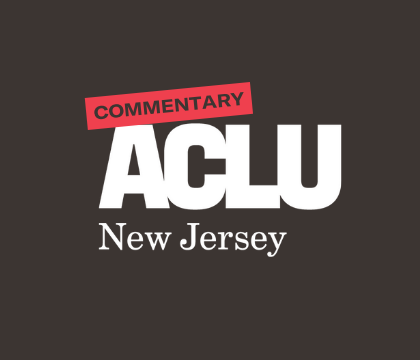

The Essex County Correctional Facility Civilian Task Force: An Oversight Body with Potential
Get Involved
By completing this form, I agree to receive occasional emails per the terms of the ACLU’s privacy statement.
Last updated on August 06, 2025
The Essex County Correctional Facility Civilian Task Force: An Oversight Body with Potential
In 2019, the Essex County Correctional Facility Civilian Task Force was created with the purpose of providing oversight of the Essex County Correctional Facility (ECCF), a jail with a long record of abuses.
The Creation of the Task Force
In 2019, the Essex County Correctional Facility Civilian Task Force was created with the purpose of providing oversight of the Essex County Correctional Facility (ECCF), a jail with a long record of abuses, including violence, overreliance on isolated confinement, inadequate medical care, and other egregious conditions.
Following years of complaints from people held in the jail, along with news articles and scathing reports from the Department of Homeland Security exposing serious issues, advocates and members of the public called for action through community oversight.
The first class of Task Force members was appointed in June of 2020, with former Governor James McGreevey named Chairperson and former United States District Court Chief Judge Jose Linares named Executive Director.
The Oversight Powers Granted in the Ordinance
The Task Force was given strong tools to hold the Essex County Correctional Facility accountable, including the ability to:
- Receive and investigate complaints from people in custody, their loved ones, advocates, and community members.
- Question jail staff.
- Visit all areas of the jail, including on short notice.
- Speak with people who are detained in the facility.
- Give recommendations to jail and county leadership.
- Issue reports about conditions.
The Task Force’s mission of protecting the health, rights, and safety of those held at the jail has given it the potential to be a model for other jails nationwide. However, because community oversight can succeed only after building trust with community members and demonstrating sufficient independence from the jail, the Task Force must change the way it operates by adopting transparent, independent practices that allow the body to live up to its potential. Most importantly, the Task Force must make itself a known and trusted resource, which it can do through transparent communications, creating ways to engage anonymously, inviting community voices to the table, and setting procedures to protect confidentiality, among other actions.
Shortcomings In Providing Meaningful Oversight
More than two years since its creation, the Task Force has neglected significant obligations outlined in the ordinance creating it, and its oversight has not been sufficiently independent or transparent. The public has little knowledge concerning the Task Force’s use of its oversight powers, including whether it exercises them proactively or has made itself and its processes known to people in custody at ECCF.
The Task Force’s periodic public meetings allow only limited public input, and its website and Facebook page contain relatively little information.
The ACLU-NJ and our partner organizations continue to monitor the work of the Task Force and to provide recommendations. The ACLU-NJ has offered technical assistance and submitted recommendations to leadership to help the Task Force to live up to its promise of accountability and to fulfill its role as a resource to the people in ECCF.
The ACLU-NJ’s recommendations for how the Task Force can play a meaningful oversight role include:
- Ensuring that all individuals in custody at ECCF, their loved ones, and their representatives know about the Task Force, including how to contact it, confidentiality rules, complaint review processes, and the Task Force’s independence from the jail.
- Ensuring people can submit complaints free of charge and anonymously.
- Sharing information widely about how advocates, people in custody, and members of the public can engage with the Task Force.
- Establishing and publicizing consistent procedures for reappointing or filling open seats.
- Establishing a presence at the jail, particularly through unannounced visits as permitted by the ordinance.
- Taking steps to establish independence from the jail and from county government.
- Updating the public regularly and often about the Task Force’s activities and decisions.
Related Issues
Related Content

- Prisons & Jails|
- +2 Issues

